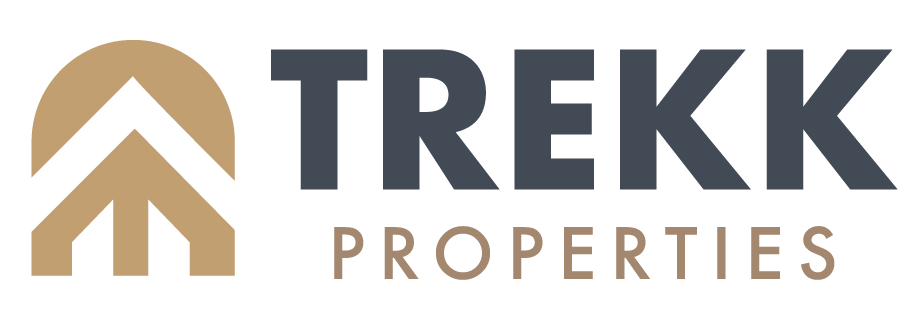
How Trekk is approaching tech adoption while staying true to its values
In an industry that’s constantly evolving, Trekk remains clear on one thing: technology should make life easier—for residents, property owners, and staff—but never at the expense of genuine human connection.
While some property management companies race to automate every touchpoint, Trekk is taking a more intentional approach. “We don’t ever want to lose that customer interaction,” explained Chris. “Especially with showings, HOAs, or resident support. If tech helps speed up the process and still allows a personal touch, that’s a win.”
Tech with a Purpose
Trekk’s leadership team is focused on ambitious three- and ten-year growth targets, which include not only revenue and units managed, but also measurable community impact. To meet those goals, the company is actively exploring new tools and services—particularly in automation and AI.
That includes improving efficiencies in accounting and payment systems, streamlining maintenance processes, and exploring automation options like accounts payable tools and maintenance request workflows. The goal? Free up internal bandwidth to deliver faster, more consistent service—without sacrificing the personal relationships that drive tenant satisfaction.
The Caution Against Over-Automation
The team has seen firsthand what happens when property managers rely too heavily on AI. In some apartment complexes, leasing is now fully automated: prospective tenants schedule showings through bots, receive tablets at the door, and walk themselves through units without ever talking to a person. Questions? They’re often met with automated chat tools that can’t provide meaningful answers—or any follow-up.
That’s not how Trekk operates.
Especially in competitive markets like Rochester, the company believes the human connection is a differentiator, not a liability. “You lose so much opportunity by not being able to have that connection with someone,” said one team member. “The tech might be fast, but if a potential resident can’t get the answers they need—or feel like they’re talking to a wall—they’ll move on.”
Meeting Residents Where They Are
Trekk’s approach blends technology and touch. For example, AI features integrated into their property management software, AppFolio, offer tools that could automate some communication. But Trekk’s team uses them selectively—adjusting templates and responses to maintain a warm tone and address resident concerns with care.
“The platforms move quickly,” said one team member. “So we stay informed, experiment, and adopt what aligns with our service standards—but we’re not going to hand off our tenant relationships to a bot.”
This strategy is especially important as property managers are asked to wear more hats than ever: tech specialist, salesperson, maintenance coordinator, and conflict resolver—all while managing properties and relationships. With this load, well-chosen technology becomes a support system, not a substitute.
The Balance That Drives Growth
Trekk’s tech roadmap is rooted in its five core values: driven, dependable, positive, collaborative, and community-focused. Automation is one way the company stays driven and efficient—but it never comes at the cost of being dependable or community-minded.
As they continue growing, Trekk sees AI and automation not as shortcuts, but as tools that, when used wisely, help deliver the high-touch, relationship-first experience their tenants and clients have come to expect.
Key Takeaways:
• Automate to support, not replace. Technology should make property managers’ jobs easier, not distance them from tenants.
• Use AI where it adds value. Internal processes like accounting are great candidates. Resident communication? Tread carefully.
• Stay flexible. Adopt tools that allow for customization, not rigid automation that strips away personality.
• Protect the personal touch. Human connection is still your best retention and leasing strategy.
• Lead with your values. Let your company culture—not tech trends—guide adoption decisions.
